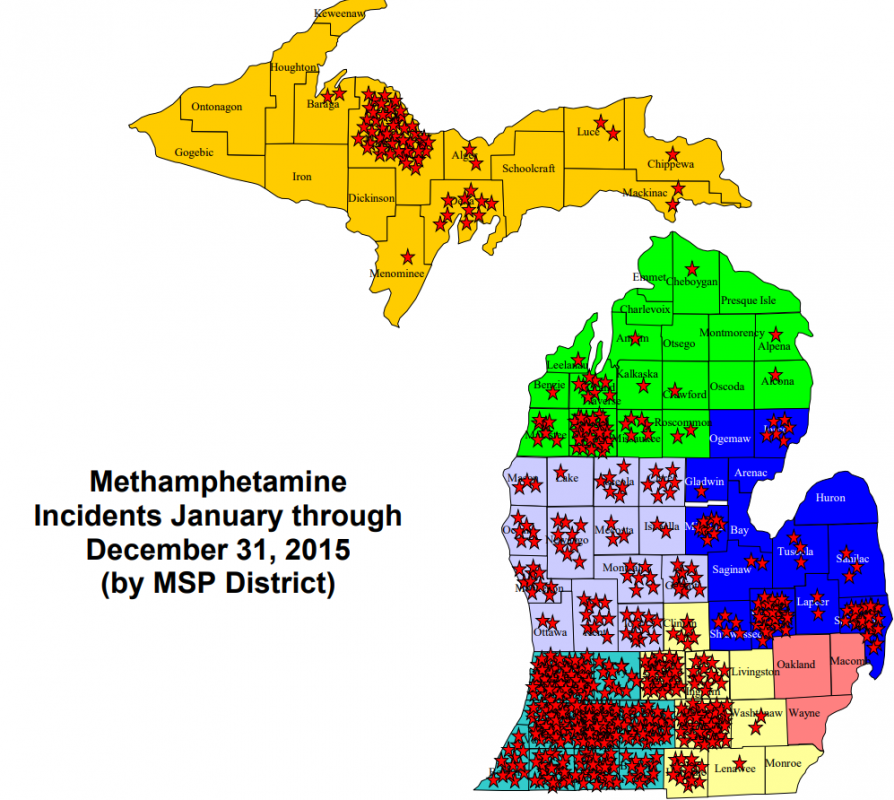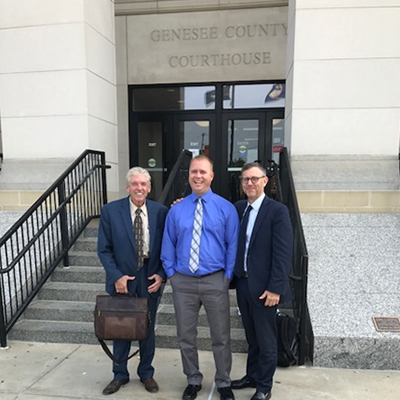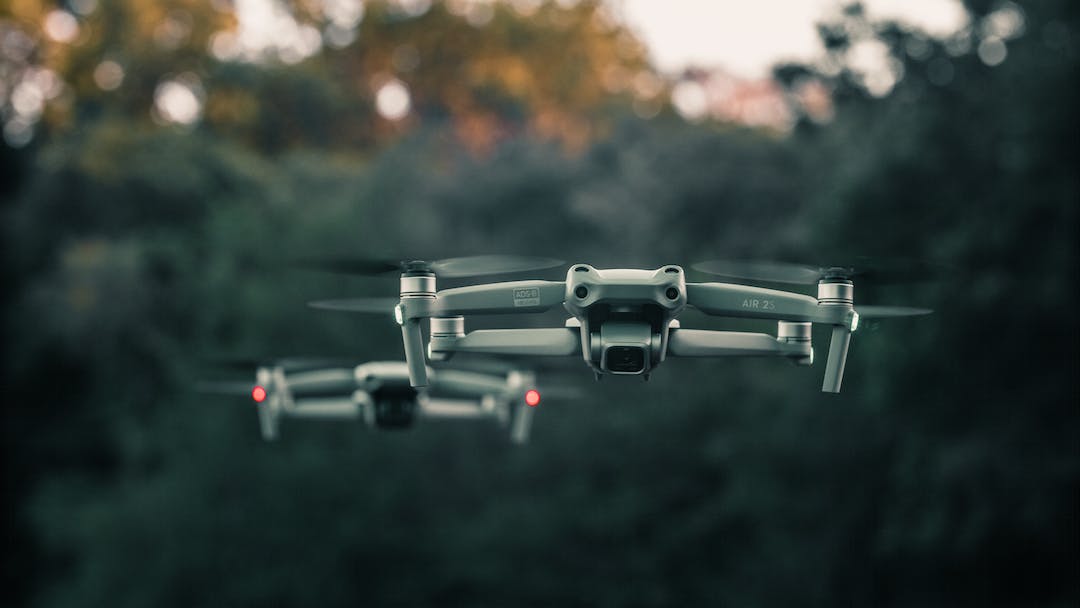Drone Surveillance and the Fourth Amendment: A New Case
In a recent decision, the Michigan Court of Appeals held that persons have a reasonable expectation of privacy in their property against drone surveillance conducted without a warrant or pursuant to a recognized exception to the warrant requirement. The case, Long Lake Township v Maxon, involved a civil zoning dispute in which the Township used a drone to take aerial images of the Maxon property without consent or any other specific legal authorization.
The Court of Appeals found that drone surveillance of private property is necessarily more intrusive and “qualitatively different” than the use of airplanes and helicopters permitted under California v Ciraolo and Florida v Riley. The Court noted that drones can fly at lower altitudes and hover in place, allowing them to collect more detailed images and information about private property.
The Court also found that the use of low-altitude unmanned drones to conduct targeted surveillance of private property is more like the use of thermal imaging devices found to be a “search” in Kyllo v United States. In Kyllo, the Supreme Court held that the government’s use of a thermal imaging device to monitor the radiation of heat from a home was a Fourth Amendment search. The Court reasoned that the government’s use of the thermal imaging device was a physical intrusion into the home’s curtilage, which is an area around the home that is considered to be part of the home itself.
The Court of Appeals in Long Lake Township v Maxon found that the Township’s use of a drone to take aerial images of the Maxon property without consent was a similar physical intrusion into the Maxon property. The Court also noted that the existing law in Michigan recognizes a reasonable expectation of privacy and other legal protections against drone misuse.
The decision in Long Lake Township v Maxon is significant because it is one of the first cases to address the Fourth Amendment implications of drone surveillance. The Court’s decision provides clear guidance to law enforcement and other government agencies that they cannot use drones to conduct surveillance of private property without a warrant or a recognized exception to the warrant requirement.
Implications for Law Enforcement
The decision in Long Lake Township v Maxon has important implications for law enforcement agencies that use drones for surveillance purposes. Law enforcement agencies should review their policies and procedures to ensure that they are consistent with the Fourth Amendment requirements set forth by the Court of Appeals.
In general, law enforcement agencies should obtain a warrant before using a drone to conduct surveillance of private property. However, there are a few limited exceptions to the warrant requirement, such as when the surveillance is conducted in response to an emergency or when it is conducted in a public area where there is a diminished expectation of privacy.
Law enforcement agencies should also be aware that the Fourth Amendment may apply to the use of drones even if the surveillance is not conducted directly by the agency itself. For example, if a law enforcement agency contracts with a private company to conduct drone surveillance on its behalf, the agency may still be required to comply with the Fourth Amendment.
Have you been charged with driving while high?
Want to fight that charge!
Call Our Office for a Free Case Evaluation
The decision in Long Lake Township v Maxon is a significant development in the law of drone surveillance. The Court’s decision provides clear guidance that the Fourth Amendment protects people from warrantless drone surveillance of their private property. Law enforcement agencies and other government agencies should review their policies and procedures to ensure that they are consistent with the Court’s decision.
The Court found the use of low-altitude unmanned
drones to conduct targeted surveillance of private property
to be more like the use of thermal imaging devices found
to be a “search” in Kyllo v United States when used to
monitor the radiation of heat from a home, and further
noted the existing recognition of a reasonable expectation
of privacy and other legal protections against drone misuse
as found in MCL 259.322(3) and MCL 259.320(1) (See Below)
Act 436 of 2016
259.322 Operation of unmanned aircraft system; harassment, violation of order, or invasion of privacy prohibited; definition; individual registered as sex offender.
Sec. 22.
Act 436 of 2016
259.320 Criminal liability; offense committed with aid of an unmanned aircraft system; exception.
Sec. 20.
Did You Know
Michigan State Police Legal Updates
MSP Legal Update No. 153 (01/2023)
- Search & Seizure: The smell of marihuana, standing alone, no longer constitutes probable cause to search for that substance
- Vehicle Code: Violation for impeding traffic requires evidence the accused’s conduct actually affected the normal flow of traffic.
Legal Update No. 153 (01/2023)
MSP Legal Update No. 150 (01/2022)
- Vehicle Code: Persons under the age of 21 may be prosecuted for operating a motor vehicle with the presence of marihuana in their system
- Criminal Law: Ethnic intimidation based on gender includes harassing or intimidating another person because of the actual or perceived gender of that person.
Legal Update No. 150 (01/2022)
Legal Update No. 148 (09/2021)
Legal Update No. 148 (09/2021)
Legal Update No. 147 (03/2021)
More Posts

Michigan Law on Boating Under the Influence
Michigan Laws on Boating Under the InfluenceBoating is a fun activity, but it can be dangerous if the operator is under the influence of drugs or alcohol. Michigan law prohibits operating a motorboat while under the influence of drugs or alcohol. Boating Under the...

Client testimonies about their experience with the legal system
Komorn Law clients speak about their experience with the legal system Several of Komorn Law client's as well as other individuals have chosen to speak about their encounter with law enforcement, the legal system and how it has affected their lives, families and...

MICHIGAN MEDICAL MARIHUANA ACT – Section 4 Defense
Marijuana Criminal Defense Client with medical marijuana card was charged with marijuana possession. Client was assigned a court appointed lawyer and encouraged to plead guilty and accept 3 months of probation. Client hired Michael Komorn for representation and...

Michigan Methamphetamine Defense
Bill Schuette, the current Michigan Attorney General, is waging war against Meth users, dealers and labs. Innocent people get swept up with meth crimes when police run field tests on any powdery substances, frequently returning false positive results. Komorn...
Foster Care Agencies Allegedly Discriminated Against Poor, Medical Marijuana Patients
Two families -- including one mom who alleges Child Protective Services took her suckling baby from her breast -- are suing the state, alleging discrimination because they are medical marijuana users and poor. In the lawsuit, attorney Michael KOMORN alleges the...
MMMA-Profile-Michael-Komorn
Here are some links to articles posted by Attorney Michael Komorn US Government Collecting and Using Citizen Communications NATIONAL TOXICOLOGY PROGRAM Technical Report Series No. 446 (1996) Oral cannabis extracts as a promising treatment for the core...

Komorn Law – Victory in Genesee County
Komorn Law PLLC is proud to report a ruling today from the Genesee County Circuit Court. This case involved my client's property and all kinds of salacious allegations of really bad behavior by this property, and I mean bad stuff, like stuff you could never...

Komorn Law AVVO Ratings
KOMORN LAW AVVO - RATINGS Read Client AVVO Reviews

Komorn Law-In the News-Fox17
Komorn Law | In the News | Fox 17 News | Links Medical marijuana battle: Father fights for custody of son OTTAWA COUNTY, Mich. – Medical marijuana is a controversial, sometimes sticky issue, especially in Michigan. Max Lorincz is a father from Spring Lake who...
AVVO Ratings and Reviews Update Aug 2016
Michael Komorn’s reviews 5.0 stars - 23 Total Avvo Rating: 10.0 out of 10 Cases dismissed 5.0 stars Posted by Ryan August 24, 2016 I had two charges in Wayne county. I was facing 6 years in prison. Michael was very informative and reassuring...











